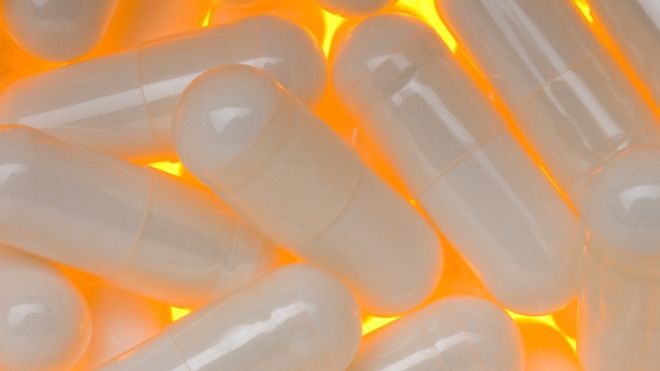 Glucosamine supplements, better known as a remedy for joint pain, may lower a person's risk of cardiovascular disease (CVD), research suggests.
Glucosamine supplements, better known as a remedy for joint pain, may lower a person's risk of cardiovascular disease (CVD), research suggests.
Glucosamine supplements, better known as a remedy for joint pain, may lower a person's risk of cardiovascular disease (CVD), research suggests.
The findings in the British Medical Journal (BMJ) come from nearly half a million people in the UK.
Almost one in five of the 466,039 participants said they took glucosamine.
Users were less likely to develop heart and artery diseases or stroke, or die from these conditions.
The results suggest a possible benefit, but more and longer studies are needed.
It could be that users are generally more healthy, rather than glucosamine having a direct effect, experts caution.
Glucosamine is a naturally occurring compound found in joint cartilage.
The body can make its own glucosamine, but supplements are sometimes used by people looking to relieve pain and symptoms of osteoarthritis and other joint disorders.
Most glucosamine supplements are sold in pharmacies and health food shops in the UK as a "food supplement" and not a medicine. They are checked for food safety to ensure they won't do you any harm, but they are not checked for quality or quantity of the "active" ingredient.
The active ingredient can be made synthetically or derived from the shells of shellfish.
The evidence supporting the effectiveness of glucosamine for joint pain is mixed and very limited. Guidelines for the NHS do not recommend it for osteoarthritis.
The new suggested link to a lower risk of cardiovascular disease needs more research. The BMJ study was observational - it can't establish cause. And it did not include detailed information on glucosamine dose or duration of use.
Glucosamine was associated with a 9%-22% lower risk of CVD death, coronary heart disease and stroke, compared to non-use over the 10 years of the study.
The researchers believe the supplement may have an anti-inflammatory effect, which could explain the suggested benefit, but more investigations are needed.
Studies on the safety of glucosamine are limited.
People with an allergy to shellfish should not take it, nor should women who are pregnant or breastfeeding.
Glucosamine should be avoided by people taking warfarin, as it may affect blood clotting.
It may also decrease the effectiveness of some anti-cancer drugs, say experts.
Like any supplement or medication, it can cause side-effects in some individuals.
Prof Naveed Sattar, from the University of Glasgow, said: "Only a trial can determine whether there is any truth to the lower observed risk. Observational studies can only ever generate new ideas to test.
"Many other supplements have not proven benefits in trials even when observational data suggested there may be health benefits. Some supplements have even been shown to cause harm in trials. So, for now, I would not rush to buy glucosamine to lessen my heart risks when there are many other cost-effective proven ways to do so."
Dr Sonya Babu-Narayan, from the British Heart Foundation, said: "One in four people in the UK still die from heart and circulatory disease. We urgently need to fund research that could result in improved prevention, diagnosis and treatment.
"If a well-known and widely available supplement like glucosamine could help prevent heart and circulatory diseases, including heart attack and stroke, it is an avenue of research worth exploring.
"Meanwhile, an important way to reduce your risk is to maintain a healthy lifestyle and - when relevant - take medications as recommended to you by your doctor."
By BBC News - Health